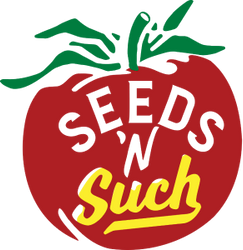
Sustainable Farmer Joel Salatin Says Planting Garden Should Cure “Loneliness”
Photo by Benjamin Combs on Unsplash
Internationally-known, Virginia sustainable farmer Joel Salatin recently talked about a Wall Street Journal study concerning an increase in American “loneliness” on his blog site, Musings of a Lunatic Farmer. After fully analyzing the article, Salatin thinks the logical cure for this increase in loneliness would be for everyone “to plant a garden or at least plant something.”
Salatin says, according to the study, “Loneliness is up: 61 percent of Americans say they’re lonely. Additionally, the study found a direct relationship between social media and loneliness. The more social media usage; the higher the loneliness.
“But I thought we were better connected through our devices,” Salatin wonders, “These kinds of findings make me shake my head and marvel. In case you’re just tuning in, Teresa (his wife) and I have no TV in our house. Neither of us has a smart phone. We have flip phones. I don’t do texting-at all. My cell phone does not work in our house. Even cordless landlines are dicey in our house.
“I’m not lonely,” he vows, “Is it possible to have device addiction? Or to have interest addiction—like if someone doesn’t express interest in me every 30 minutes, then apparently, the world doesn’t think I’m worth attention? I read a report about geniuses. Two things they have in common: lots of walking and lots of time by themselves. One of the greatest gifts any of us can enjoy is what I call the gift of ‘being happy in your own skin.’”
Salatin stresses, “Loneliness increases when we don’t feel love or connected. This is why gardening with children, or raising animals with children is so important. We humans, made from humus, have a primal connection to the soil, to plants, to animals. Amazingly a milk cow never laughs at my ears or the wart on my nose. She couldn’t care less and only responds to my care in abundance and gratitude. She puts it in the bucket.
“I wonder how far a culture can become removed from life, from nature, from connection to our ecological umbilical, before it simply spirals out of control,” he ponders, “Author Richard Louv coined the phrase ‘nature deficit disorder’ and pulled from countless studies to show the therapeutic affect of communing with life.”
But Salatin notes, “Modern lives are artificial. Sir Albert Howard said that when we use artificial fertilizer to make artificial soil, it grows artificial plants that feed artificial animals that end up in artificial humans who can only be kept alive with artificials. He wrote that in the early 1940s. How prescient.
“Artificial existence is certainly not far removed from artificial conversations and artificial living,” he adds, “When you think food comes in a wrapper; oxygen has no relation to plants; water comes from a spigot and energy comes from a light switch; floating in such emotional and spiritual disconnection inevitably leads to disembodied psychology.”
Salatin says, “Isn’t it interesting that our culture spirals into loneliness and psychological dysfunction, increasing suicide and rage, that no expert dares to suggest: ‘Maybe we should have gardens.’ Or ‘maybe we should replace Disney with farm visits.’ Or ‘maybe we should eat food we had a hand in growing.’ These are such foundational spiritual, mental, emotional building blocks in well-being that to suggest they’re important seems silly.
“But all we hear is drugs for this. Regulations for that,” he continues, “Slogans, chants, and anti-bullying policies—name your cure. These aren’t cures, and unless and until our broader culture realizes we’ve become unmoored from what it means to be human, interacting with our nest, caring for our collective womb; we will be lonely, disoriented, and depressed.”
However, Salatin does have his own solution to our disconnected culture shock: “How do you become happy in your own skin?” he asks, “One way is to touch plants, touch animals, touch soil. The physical-mental relationship is direct and profound. My heart aches for people who never contemplate soil, who never see the response of a cared-for animal, who never interact with the magic of a sprouting seed. Such a disconnected existence inevitably facilitates negative self-worth and loneliness.”
As always, he ends his blog with a question, “Are you happy in your own skin?”
One of the greatest highlights in my 72 years of horticulture was an opportunity to travel to meet Joel Salatin and see his extremely diversified and sustainable farm in Virginia. If you have such an opportunity, I would highly recommend it. And as he so often says, his farm is always open to visitors.
My wife Pat and I also have had the cultural privilege of having grown up in a rural farm environment, where everyday contact with soil, plants and animals was just an integral part of our lives. We know it made a big difference in how we have been able to adapt to cultural changes over the years, and even though we are retired and live in the suburbs now, we still find time to garden in containers and with friends who have more acreage. Like the Salatins, we have no need for a TV, and we have only one flip-phone for emergencies and a landline that gets little use. There is no “loneliness” here.
If you have never experienced the “miracle that happens from planting a seed,” as my wife Pat phrases it; you need to get a seed order off to my friends at Seeds ’n Such. Just choose your favorite vegetable and flower varieties to make home gardening a part of your family culture. You’ll be able to get lots of fresh, nutritious and safe food to share with family and friends. To us, that’s what “real” life and culture is all about—nothing artificial!
